
Poker Strategy
FTR will turn you into a winning poker player!
Welcome to FTR’s Poker Strategy section! We currently have over 400 free Poker Strategy articles in our ever growing archive.
These strategy articles contain as much information as you would find in multiple poker books – for free! Make sure you take advantage of this free poker strategy and poker training, on all of the topics shown below. Whether you’re a beginner, seasoned professional, cash game grinder, or tournament specialist, there is something to help take your game to the next level.
FTR has been featured by many poker websites and magazines over the years. In Bluff Magazine, Lee Jones mentioned that FlopTurnRiver.com has absolute golden information you can use to improve your game. Poker pro Chris “Wallace” Fox also recommended FlopTurnRiver.com as a free poker training site in Poker Pro Magazine. We also have many reader testimonials from our members saying FTR made them a winning poker player.
To discuss any of the poker strategy articles you find on our site, make sure to sign up for a free account in our poker forum. Let us help you become a winning player!


Texas Hold em Poker Hands Order
provides a comprehensive breakdown of the hand rankings in Texas Hold'em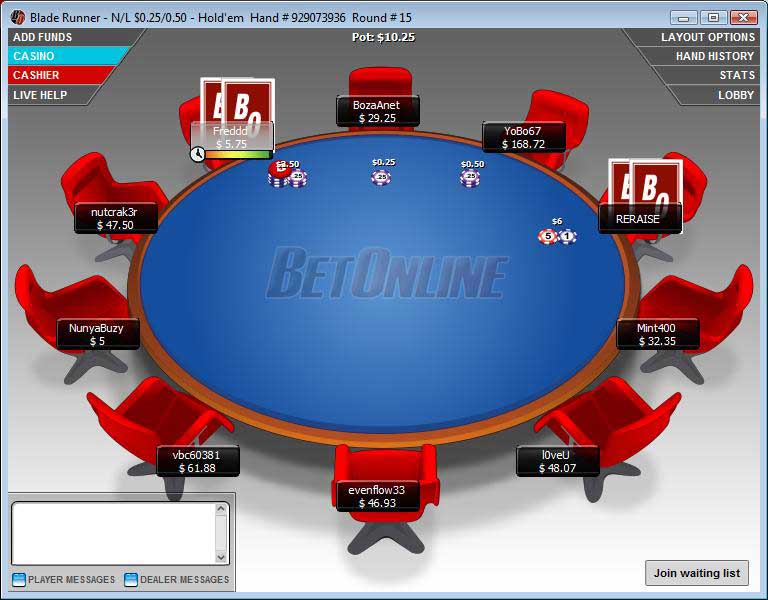
Texas Holdem Position
the critical role of player position in Texas Hold'em poker, explaining that having a favorable position allows you to gather more information on other players' actions, thereby enabling better decision-making![[FTR Quick Tip 011] Playing Suited Connectors](https://flopturnriver.com/wp-content/uploads/2016/08/poker-videos.jpg)
[FTR Quick Tip 011] Playing Suited Connectors
the strategic value of suited connectors in No Limit Hold’em cash games, highlighting their potential to diversify one's playing range and avoid predictability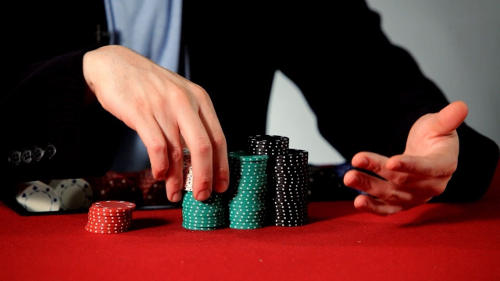
No-Limit Hold’em… A Flaw in Design
argues that the game of No-Limit Hold'em has inherent design issues, particularly in cash games, where skilled players can find themselves handicapped when facing novices who buy-in for the minimum, rendering many of the skilled player's strategies ineffective
Double or Nothing SNGs – Part III – Bubble Play & Collusion
end-game strategies for Double or Nothing Sit & Go poker tournaments, focusing on how to navigate the bubble phase and the role of collusion among players to knock out short stacks and secure a spot in the money
Danny & Max Steinberg 6 Max Strategy & Concepts ($200nl Cash Game)
The two-part video features Danny (ISF) and Max (Massimo) Steinberg discussing their thought processes during hands, exploring both basic and advanced No Limit Hold'em concepts, with a particular emphasis on strategic manipulation and bluffing in 6 Max $200nl cash games
ISF – Forming Ranges
delves into the concept of forming hand ranges in poker, explaining that understanding the rationale behind your hand choices can help you self-repair leaks in your game
PLO Survival Guide
There's a lot of money to be made in Pot Limit Omaha, but if you're a No Limit Hold'em player, then you're likely making big mistakes. Read on to find out how to properly evaluate starting hands, estimate the value of drawing hands and control the size of the pot.![[FTR Quick Tip 011] Playing Suited Connectors](https://flopturnriver.com/wp-content/uploads/2016/08/poker-videos.jpg)
[FTR Quick Tip 015] Floating the Flop
the advanced poker strategy of floating on the flop, emphasizing its effectiveness when used judiciously, but cautioning against indiscriminate floating which can lead to becoming a predictable calling station
Practice makes Perfect
challenges the common adage, asserting that while practice is essential, it's the quality of practice that truly matters, emphasizing that perfect practice leads to optimal performance and highlighting the importance of understanding and correcting mistakes outside of live play
Modern Blind Stealing for No-Limit Hold’em
Online no-limit hold'em is known for focusing around a handful of plays, and stealing the blinds is one of those.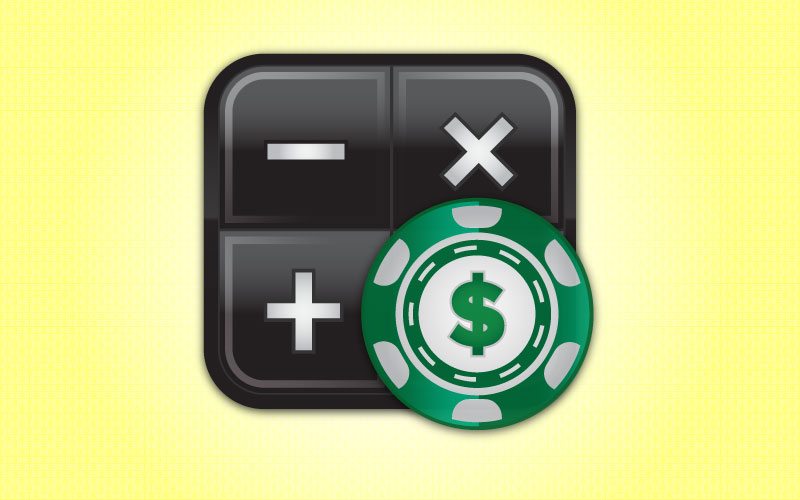
Calculating Hand Combinations
understanding hand combinations in poker, discussing the probability of specific hand occurrences, the impact of blockers on potential hand combinations, and how to quickly calculate the likelihood of certain hands based on visible cards and known blockers
Building Your Bankroll & Moving Up
Considerations for moving up in stakes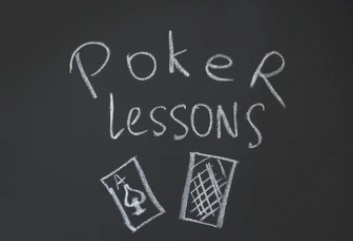
Checking to Induce in No-Limit Hold’em
In games dominated by aggression, checking to induce is one of the plays that has been lost for a lot of players.
No Deposit – All Returns: How to Build a Bankroll from Nothing Part I
how to build a poker bankroll without making any deposits, emphasizing the importance of understanding poker strategies, learning from play money tables, and leveraging freerolls on poker platforms to earn real money
Please Stop Paying Off Loose/Passives at the Poker Tables
Having the faith to lay down hands when facing aggression from loose/passive players requires a strong understanding of why you can fold.
Dealing With Bad Beats
the inevitability of bad beats in poker, emphasizing that they are a part of the game, often reinforcing poor play in some players, and highlighting the psychological stages players go through when faced with such situations, from anger to indifference
Advanced Value Betting in Simple Scenarios With Game Theory
In order to value bet successfully on the river, you need to analyze your opponent's calling range. Thinking about unexploitable bluffing and calling frequencies can be helpful. Be sure not to value bet hands that will win less than half the time that your opponent calls.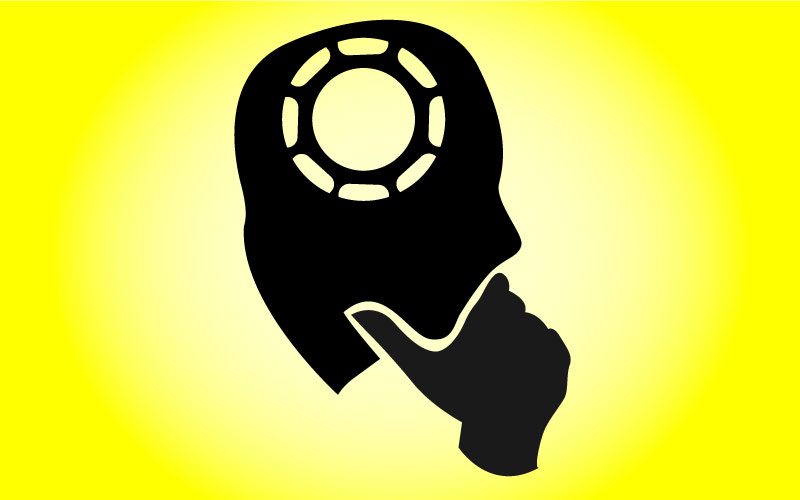
Expanding Your Pre Flop Range
strategies of broadening one's pre-flop hand selection in poker, emphasizing the significance of positional awareness, understanding opponents' tendencies, and choosing hands that allow aggressive play
soupie’s Win MTT Poker 03 – Tilt, Patience
manage tilt and maintain patience in multi-table tournaments (MTT) poker, and other advice such as not stealing from emotionally wounded players, giving yourself multiple ways to win each hand, and taking time to think through crucial decisions
Limit vs No Limit Texas Holdem Poker
contrasts Limit Texas Holdem with No Limit Texas Holdem, highlighting the distinct strategies and dynamics of each game, with a focus on the greater control and strategic depth offered by No Limit Texas Holdem, which allows players to exploit larger edges against less skilled opponents![[FTR Quick Tip 011] Playing Suited Connectors](https://flopturnriver.com/wp-content/uploads/2016/08/poker-videos.jpg)
[FTR Quick Tip 002] Preflop Raise Sizing
the importance of appropriately sizing your preflop raises in poker, emphasizing situations when one might want to raise larger due to dead money in the pot or exploitable tendencies in opponents, and when to raise smaller, especially when facing short stacks or frequent three-bettors behind
Hyper’s 6-Max Limit Hold’em Guide Part 2
continuation of Hyper's guide on 6-max/short-handed play, emphasizing the nuances of shorthanded Limit Hold'em, including strategies for blind stealing, blind defense, fold equity, bluffing, and isolation bets
You Can’t Make Your Opponent Fold
in Texas Hold'em poker, you can't force an opponent to fold; instead, you can only make it more difficult for them to stay in the hand by influencing their choices, such as by raising the stakes, ultimately leaving the final decision to them
Tactics vs. Strategy (Part 2): The Foundations of Strategy
Once you understand the basis of tactical play, you can start to move towards strategic play which will give you a lot more options for exploiting your opponents.
Beating Small-Stakes Cash Games
challenges and misconceptions faced by skilled players when playing at lower stakes, emphasizing the importance of adjusting one's strategy, avoiding over-bluffing, and recognizing that advanced poker knowledge can sometimes be a hindrance in games where straightforward play is more effective against weaker opponent
Apply Yourself at Learning Poker
Whenever you read poker strategy guides or books, you must be prepared to study them carefully. Merely skimming the contents will not advance your game very much at all. You should always consider the strategic implications of anything you read to get the maximum value from it.
PLO Pot Limit Omaha Books
recommendations for books to read for those interested in learning Pot-Limit Omaha (PLO), including titles by Jeff Hwang, Stewart Reuben, and Rolf Slotboom, among others, while also discussing the value of each book's content![[FTR Quick Tip 011] Playing Suited Connectors](https://flopturnriver.com/wp-content/uploads/2016/08/poker-videos.jpg)
FTR SNG Strategy: Maximizing value in HU situations Part 2
insights into optimizing profits in heads-up poker situations by reviewing three specific hands
iPhone Online Poker How-To
You can easily play poker on your iPhone or other iOS device. Despite the fact that Apple doesn't like gambling apps in its app store, you can use three simple techniques to start playing almost immediately. Remember to use a reliable connection when playing for real money.
Bluff or Check? Missing the Flop in NLHE (Part 1): Introduction
There are several factors that you have to learn about when deciding whether or not to bluff when you've missed the flop, and we'll cover them in detail.
Nine Noobie Myths About Microstakes NLHE
debunks nine common misconceptions that beginners have about playing microstakes No-Limit Hold'em poker![[FTR Quick Tip 011] Playing Suited Connectors](https://flopturnriver.com/wp-content/uploads/2016/08/poker-videos.jpg)
[FTR Quick TIP 016] Identifying Fish
quick tip on identifying weaker players, often referred to as "fish," in poker, emphasizing that the majority of profits come from exploiting these players and providing guidance on how to quickly recognize and take advantage of them in No Limit Hold'em cash games
An Introduction to the [0, 1] Model for Ranges
It's important to have a general model for hand ranges in poker so that you can study the essence of poker without restrictions.
Raising Behind Limpers
the strategic advantages of raising after one or more players have limped into the pot, particularly in late position, highlighting the importance of position, initiative, and exploiting opponent tendencies
Picking Up Poker Tells With Your Eyes Closed
observing an opponent's breathing patterns, body language, and vocal cues can provide valuable insights into their hand and intentions during a poker game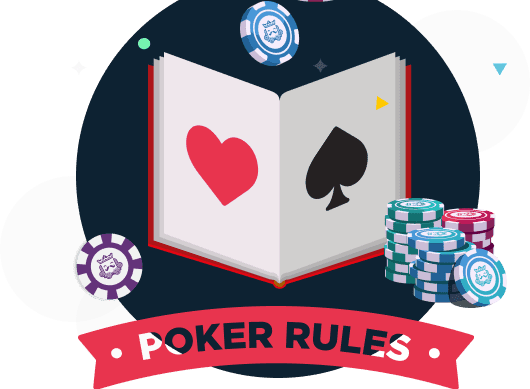
Badugi Rules
Badugi is a weird, yet addictive, type of poker. You get four cards, and you have to try to make the lowest possible hand without repeating ranks or suits. There are three draws, so you have ample opportunity to get rid of cards you don't like.
soupie’s Win MTT Poker 11 – Betting and Checking
strategies for betting and checking in multi-table tournaments (MTT) poker, emphasizing the importance of situational awareness, pot odds, and exploiting opportunities while minimizing risks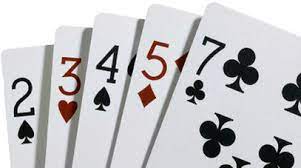
No-Limit 2-7 Single Draw Strategy (Part 2): Pat Hand Combinations
Hand combinations for no-limit 2-7 single draw are much more complicated than hold'em, but they can be made relatively easy with this method.![[FTR Quick Tip 011] Playing Suited Connectors](https://flopturnriver.com/wp-content/uploads/2016/08/poker-videos.jpg)
[FTR Quick Tip 014] Capped Ranges
insights on identifying situations at poker tables where an opponent is likely to have a weak hand, emphasizing the importance of observing previous actions to determine the absence of a strong hand and highlighting the value of recognizing when an opponent has a capped range to enhance profitability in No Limit Hold’em cash games
Importance of Table Position
the critical role of position in no-limit hold'em poker, explaining that having a later position allows players to gather more information about their opponents' actions, which is invaluable in a game based on partial information
Making Game Theory Easy With Simple Shortcuts
Game theory can be difficult to understand and apply during a game of Hold’em. After reading this, you’ll be able to figure out the right move without having to do complex math in your head. By remembering a few numbers and what they represent, you’ll be able to use game theory to your advantage.
3-Betting an Apparent Stealer in Limit Hold’em
the strategic importance of three-betting against players who frequently raise from steal positions, highlighting the need to understand opponents' raising frequencies, adjust three-betting ranges based on equity and position, and be cautious of over-aggressive plays
Radashack’s MTT Tournament Advice Part 2
the psychological and strategic aspects of multi-table poker tournaments, emphasizing the significance of understanding one's motivation, mastering the art of misdirection, recognizing signs of strength and weakness, overcoming various forms of fear, and the importance of consistent aggression
Adjusting to Different Buy-in Levels
the differences in strategy required for playing at varying buy-in levels, from 20-50bb to 100-250bb, and the impact of antes on gameplay
5 Card Stud Rules
5 Card Stud has long been popular in home games although it's difficult to find online. While there are similarities between this game and 7 Card Stud, there are fewer cards dealt. One similarity between 5 Card Stud and Texas Hold'em is that there are four rounds of betting.![[FTR Quick Tip 011] Playing Suited Connectors](https://flopturnriver.com/wp-content/uploads/2016/08/poker-videos.jpg)
[FTR Quick Tip 021] Video: Making Adjustments
If you play the same way against different opponents at the poker table, you're making a big mistake. The true pros always tailor their actions to the leaks and tendencies that they identify in their foes. You can get a lot of information by carefully observing the other players.
Omaha Hi/Lo Rules
Omaha Hi/Lo is a form of Omaha poker that, unlike regular Omaha, is usually played in limit rather than pot limit format. You'll be trying to make hands for both high and low in this format. With any luck, you'll scoop both parts of the pot!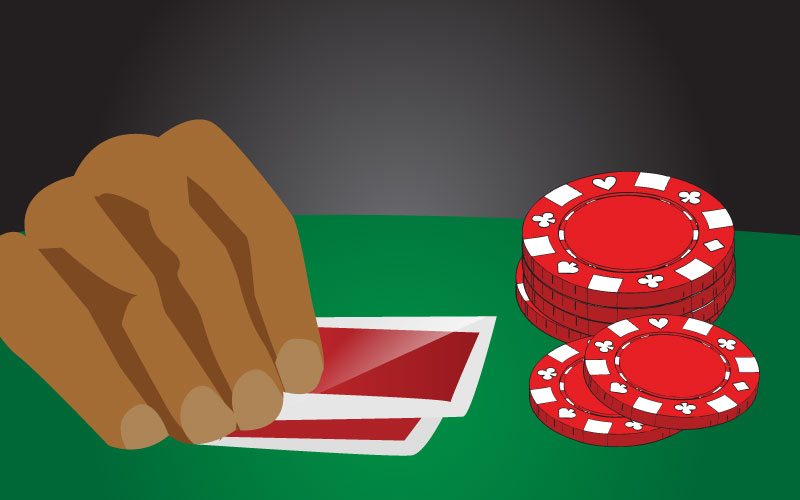
Chardrian’s Guide to Live Small Stakes Limit Holdem (Part 7)
When sitting in the blinds in Limit Hold'em poker games, you'll be getting a substantial discount to play your hand. This doesn't mean that you should play any two cards. You still need to consider how your hand's equity fares against your opponents' ranges.
Optimizing Your Sessions With Simple Routines
Establishing a set of routines to perform before you begin playing poker will produce long-term, positive results. By properly training your body, you'll be able to condition your involuntary responses to make you calm, focused and ready to play whenever you want to.
Understanding the Importance of Shania (theory post)
the concept of Shania theory in poker, which emphasizes the importance of having a balanced range of hands when making bets, raises, or calls, thereby reducing the likelihood of making big mistakes and increasing the expected value (EV) of your plays
No-Limit 2-7 Single Draw Strategy (Part 3): Draw Combos
Finding the number of ways to be dealt draw hands in 2-7 single draw is a bit more complicated than pat hands, but it's not too bad.![[FTR Quick Tip 011] Playing Suited Connectors](https://flopturnriver.com/wp-content/uploads/2016/08/poker-videos.jpg)
[FTR Quick Tip 008] Slowplaying Flopped Monsters
the strategic value of slowplaying strong hands in no-limit Hold'em cash games, highlighting that while it can maximize value from concealed monster hands, inappropriate slowplaying can be costly, and players should recognize the right situations to deploy this tactic effectively
Semi-Bluffing Examples to Build Your Intuition
Semi-bluffing can be an important part of your game, but many players have difficulty understanding how their EV increases just by having outs to the nuts before the river. This article examines examples which demonstrate the inherent value of semi-bluffing for new and experienced players alike.![[FTR Quick Tip 011] Playing Suited Connectors](https://flopturnriver.com/wp-content/uploads/2016/08/poker-videos.jpg)
6-Max 2-Table by Renton High Stakes $400 – Part 2
90-minute session where the presenter explains their thought processes in detail and discusses hypothetical scenarios during idle moments; this is the second part of a two-part series![[FTR Quick Tip 011] Playing Suited Connectors](https://flopturnriver.com/wp-content/uploads/2016/08/poker-videos.jpg)
[FTR Quick Tip 010] Flop Range Adjustments
the importance of adjusting and readjusting one's poker strategy based on opponents' gameplay, advocating for tailored approaches against different players to maximize earnings in No Limit Hold’em cash games
HORSE Rules
In HORSE, players must play 5 different poker games: Hold'em, Omaha/8, Razz, Seven Card Stud and Seven Card Stud/8. All games are in limit betting format, and each game is played for eight hands before the next game in the rotation begins.
Poker Ploys – Poker Tells & Poker Ploys
various strategies and maneuvers that poker players use to gain an advantage, such as faking calls and observing opponents' reactions, to either bluff effectively or call out a bluff
Hyper’s 6-Max Limit Hold’em Guide
guide to 6-Max Limit Hold'em, emphasizing the importance of making decisions with positive expected value, being tight and aggressive, and understanding the crucial role of position
Renton’s Small Stakes NLHE Ring Strategy: Postflop II
Renton's strategy for small stakes No-Limit Hold'em ring games, focusing on post-flop play and emphasizing the importance of understanding opponent tendencies, hand ranges, and making informed decisions based on board texture and betting patterns
NLHE Foundations #07: Putting Opponents on Flop Ranges (Part 1)
understanding and categorizing flop ranges in No-Limit Hold'em, emphasizing the distinction between pre-flop and post-flop ranges, the significance of high card and wet flops, and the importance of analyzing opponents' continuation betting and checking habits to gain a competitive edge in the game
When It’s Safe to Bet Poker Tells
How to take advantage of live poker tells
Chardrian’s Guide to Small Stakes Live Poker (Part 4)
the importance of understanding hand strength and provides guidelines for starting hand preflop play, cautioning players against strictly adhering to charts and underscoring the significance of raising with big hands like AA-TT and AK to maximize expected value
New Approach to Table Selection
unique method for table selection in poker, suggesting that players can attract fish by starting at an empty 6-max table and waiting for them to join, emphasizing that this strategy can lead to a table filled with less skilled players, thereby increasing one's chances of winning
[FTR Quick Tip 007] 3-Betting, Part 4: Example Hands
the nuances of 3-betting in poker, using example hands to illustrate when to 3-bet for value, when to 3-bet as a bluff, and when to simply cold call, all while considering various player stats like VPIP, PFR, and fold to 3-bet percentages
An Easy Guide to Exploiting Your Opponents
By paying close attention to your opponents' actions at the poker tables, you can get pretty solid reads on their play. Using this information, you can make some of your ranges stronger while making others weaker in order to seriously exploit your foes.
Back to Basics (Part 3): Semi-Bluffing in Position
One of the things about semi-bluffing in position that a lot of players overlook is the ability to check for another card right away.
Pot-Limit Omaha Fundamentals
Pot Limit Omaha is an exciting, action-filled game that anyone can play. But you need to be mindful of the differences between PLO and Texas Hold'em. For starters, you must use exactly two cards from your hand and exactly three from the board.
Making Our Strategies More Robust and Avoiding Auto-Pilot
You shouldn't play the same way against all opponents. By considering how strong or weak you want your ranges to be in certain poker situations, you can get the best of your adversaries. Learn how to modify your default ranges for increased profits.
FTR SNG Strategy: Maximizing value in HU situations Part 3
Heads-up play in a Sit and Go tournament is different from normal play at a larger table. Your ranges will need to be very wide. By winning more than your fair share of HU duels, you'll be able to increase your ROI and profits in any SNG especially multi-table SNGs.
FTR SNG Strategy: Thin River Value
Artur delves into Sit & Go poker strategy, focusing on two hands with critical river decisions, emphasizing the importance of analyzing river plays, especially in thin spots, to ensure optimal gameplay
PokerStars Sit And Gos – Heads Up
overview of the heads-up Sit and Go tournaments on PokerStars, detailing the different blind structures, game styles, and buy-in levels, along with strategic advice for improving win rates
Running it Twice: The Ultimate Guide
Looking for information on running it twice in poker? In our ultimate guide we explain what it is, show examples, and give our advice on when you should and shouldn't run it twice, and more.
Continuation Betting in NLHE Full Ring
nuances of making continuation bets in full-ring No-Limit Hold'em games, particularly at lower stakes, emphasizing that players often make mistakes in deciding when to continuation bet and suggesting that understanding the table dynamics and opponent behavior can help in making more informed decisions
chardrian’s Guide to Live Small Stakes Limit Hold’em (part 12)
Betting for value is critical in any small-stakes, live Limit Hold'em cash game. We'll look at an example hand, changing a few variables around, to see under what circumstances we have a clear bet for value. It's important to keep making correct bets and raises without being results-oriented.
Tactics vs. Strategy (Part 4): Practical Use of Strategy
In our final installment of this series, we look at how strategic and tactics are related and other resources for continuing your study.
A Jedi Mind Trick for Improving at Poker
You don't just have an innate, unchangeable level of skill at poker. By adopting the right mindset and exercising your willpower regularly, you'll be able to make substantial improvements -- improvements that may well put you ahead of someone with a higher level of natural talent.
Bluffing Poker Tells
Players often exhibit specific tells when bluffing at the poker table, and while individual reactions may vary, there are general tells, as discussed by Caro, that can indicate a bluff
Exploitation and the FTC Theorem
concept of the FTC (Fold-to-Continue) Theorem in poker, emphasizing how players can exploit opponents with high FTC ratios by making strategic bets and raises, while also cautioning players to maintain balance in their own play to avoid being exploited
Using Game Theory in SNG Tournaments (Part 1): Heads Up Basics
Basic heads-up SNG scenarios are often much more complicated than they seem, and game theory helps us to understand why.
soupie’s Win MTT Poker 14 – Final Table, Heads Up
strategies for playing at the final table and in heads-up situations in multi-table tournaments (MTT), covering different player types, pot odds, and emotional management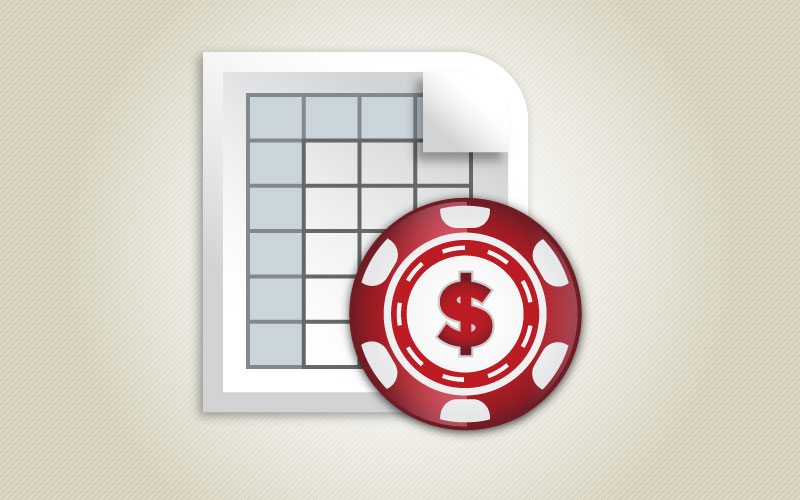
Nakamuras 2k Post
author's journey from being a novice online poker player with frequent losses to gaining expertise and building a substantial bankroll, emphasizing the significance of learning from the FTR community
Study Poker With Spreadsheets (Part 2): Multiple Betting Options
Being able to calculate two or more EV equations at the same time is the focus of this week's poker spreadsheet tutorial.
Playing No Limit Hold’em Games with an Ante
the dynamics of playing No Limit Hold'em games with an ante, explaining how the ante increases pot sizes and influences player strategies, and offers advice on how both loose and tight players can adapt to this format
PokerStars Sit And Gos – HORSE
overview of HORSE Sit & Go Tournaments on PokerStars, detailing the five poker games that make up the format, the rotation of games, buy-in ranges, and payout structures, aiming to offer a diverse and entertaining experience for players of varying skill levels
Studying Poker With Spreadsheets (Part 3): Semi-Bluffing Calculations
This week, we look at even more complicated scenarios and strategies on how to keep your poker spreadsheets organized and mistake-free.
Away From the Felt
the significance of factors outside the poker table that contribute to a player's success, emphasizing the importance of studying the game, controlling tilt, maintaining physical health through diet, exercise, and sleep, and the benefits of consistency in one's daily routine for optimal performance
Order of Poker Hands – Omaha
There are a few superficial similarities between No Limit Texas Hold'em and Pot Limit Omaha. The names of the streets and the rounds of betting are identical. There are important differences as well, not least of which is the fact that there are four hole cards in PLO.FTR SNG Strategy: Maximizing value in HU situations Part 4
There's a big difference between finishing first and second in a SNG. Improve your results by learning how to play better heads-up. Ranges will be wide, posing a challenge, but by reading your opponent well, you can lean how to maximize value and win more often than you lose.
chardrian’s Guide to Live Small Stakes Limit Hold’em (Part 13)
In brick-and-mortar Limit Hold'em ring games, you'll often have an equity edge preflop even with an unmade hand. In these spots, you have to be prepared to make the +EV decision and raise. You're leaving too much money on the table if you just call in these situations.
Finding the Motivation to Improve at Poker
Poker motivation can be difficult to find to say the least, and having a strong support system is one of the best ways to keep pushing forward.
The Efficient Frontier of Poker
draws parallels between poker and investment strategies, emphasizing the importance of achieving an optimal balance between risk and potential return
Developing a Feel for Equities in No-Limit Hold’em Part 4: The Basics of the Turn
the intricacies of understanding equities during the turn phase in No-Limit Hold'em, emphasizing the importance of intuition, observation, and strategic adjustments based on the turn card, while also providing examples to illustrate how different turn cards can impact a player's equity in the hand
Using Game Theory in SNG Tournaments (Part 2): More HU Basics
The pre-flop and post-flop games change when you play 10+ big blind stacks with a pre-flop raise that is not all-in.
Practical Game Theory in Poker (Part 2): Pre-Flop Ideas
Take it to your opponent before the flop by covering up your own weaknesses when they are being attacked and going after the weaknesses that your opponents show you.
Breaking Down the Non-Hold’em Games Part 2
intricacies of non-Holdem poker games, emphasizing the strategies and nuances of Deuce to Seven single draw and triple draw, badugi, and five card draw
Low Buy-in SNG Do’s & Dont’s
Many people are contemplating getting started in low-stakes SNGs. By following a few tips for what to do at the tables and what to avoid, you'll be well on your way to success. While you'll want to consider each decision separately, these guidelines will serve you well as you get started.
Half-Stack Appraoch to NLHE
The article from Flop Turn River outlines the half-stack approach to No Limit Hold'em, detailing its advantages and drawbacks, and emphasizing the strategy's simplicity, the perception it creates among opponents, and the adjustments required when playing with a 40-60bb stack depth
Spenda’s 5 Biggest Leaks of a Losing NL Player – Leak 1
If you're a losing No Limit Hold'em player, then you probably have big leaks in your game. Always remember to consider the value of position at all times. Another thing that losing players have a problem with is controlling the size of the pot.
Bluffing In Omaha Poker
While value-betting is important in PLO, it's also important to have bluffs in your ranges. Semi-bluffs have incredible value because many drawing hands are tied with or even ahead of decent made hands. Holding blockers to the nuts can really help your bluffs succeed.
ISF – Manipulation 202 and Questions
advanced techniques in poker strategy, focusing on the concept of manipulation through bet sizing and range manipulation to influence opponents' behavior and decisions
Texas Holdem Starting Hands – 19 Hand Strategy
introduces a foundational strategy for new poker players, emphasizing the importance of playing a limited set of 19 strong starting hands to cultivate discipline, avoid common pitfalls, and build a solid understanding of the game before exploring more advanced tactics
Limit Omaha High-Low Guide
Omaha High-Low is one of those rare poker games that appeals to people that like to gamble it up as well as to nits who don't like to play many hands. Good players have a substantial advantage over either category of opponents as long they remember to draw to the nuts.
Poker Odds of an Ace In Hand
the strategic importance and probabilities of having an Ace in one's hand during pre-flop play in Hold'em, emphasizing the dominance of pairs of Aces and the frequency of hands like Ace King (Big Slick)
Spenda’s 5 Biggest Leaks of a Losing NL Player – Leak 4
the importance of adjusting to different player types in poker, emphasizing the need to understand and adapt to the strategies and tendencies of five key player types: Nit, TAGG, LAGG, Maniac, and Fish, with detailed insights on how to effectively play against each type
Learning the Other Games
Even if you’ve never played anything but Texas Hold’em, there are universal poker principles that will make it easy for you to learn how to play other variants of the game before you master them. Your position, seat selection and bankroll management are critical when you are picking up a new game.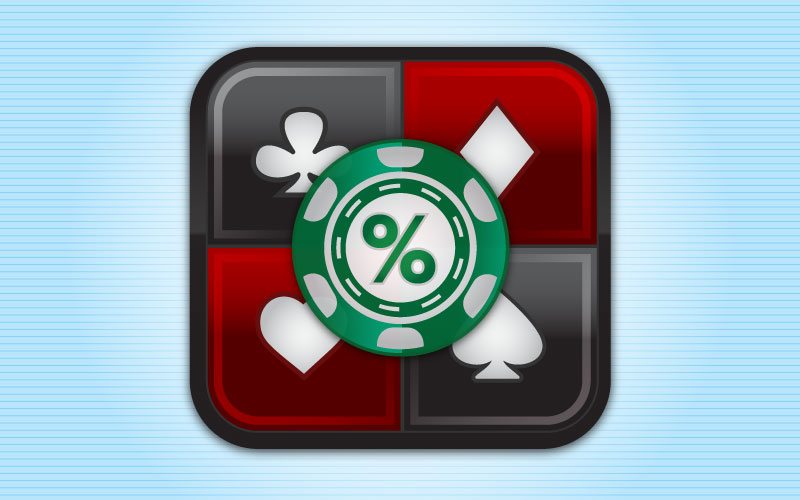
Texas Calculatem Odds Calculator
review of Texas Calculatem, a poker odds calculator, highlighting its features such as real-time hand strength analysis, odds-based recommendations, and automatic adjustments based on table position and number of players, aiming to help online Texas Holdem poker players make more informed and profitable decisions
Sit-n-Go Strategy Guide Part 2
There are important differences in play between single-table and multi-table SNGs. There are other important considerations if you're playing satellite Sit and Gos. Regardless of the type of SNG you play, you should observe your opponents and take relevant notes on them.
Building Your Poker Pyramid
the concept of the "poker pyramid," a collection of skills and personality traits essential for success in poker, emphasizing that technical knowledge is just one layer and that emotional stability, discipline, and experience are equally important for long-term profitability
Chardrian’s Guide to Live Small Stakes Limit Poker (Part 1)
first part of a guide to playing live small stakes limit poker, sharing the author's personal journey from law school to becoming a full-time poker player
Being Three Bet by Aggressive Players
the challenges faced by poker players when confronted with aggressive three-betting, offering strategies such as four-betting, adjusting opening ranges, calling in position, and check-raising the flop to counteract blind LAGs (Loose Aggressive Players)
Your Bankroll and You
proper bankroll management not only protects you from going broke but also enables you to make better decisions by reducing the psychological pressure of potential losses
ACR Poker Sit And Gos – Single Table
Sit & Go Tournaments are popular online poker games that start immediately after filling up, offering a variety of poker forms and buy-in levels, with the article focusing on single-table, normal-speed tournaments, detailing their structure, payout, and strategies for different stages![[FTR Quick Tip 011] Playing Suited Connectors](https://flopturnriver.com/wp-content/uploads/2016/08/poker-videos.jpg)
[FTR Quick Tip 018] 4nl Session Recording
Getting reads on your opponents is crucial in any form of poker. It is especially important in cash games where you might play against the same opponents for an hour or more. By carefully observing what your opponents do, even in hands where you've folded, you'll be able to exploit them.
soupie’s Win MTT Poker 02 – Be a Big Picture Person
the importance of maintaining a long-term perspective in multi-table poker tournaments, advocating for record-keeping to assess overall performance and adapt strategies accordingly
Small Stakes Limit Holdem Theorems
“Poker is a game of cards, people and position” – Multiple sources “There is nothing you can do about the cards” – Multiple sources Consider that playing cards well will only get you so far if your ultimate goal is to score as many points as possible. If I’m...
A Different kind of Quiz for SHNL: Adjusting?
various scenarios and challenges poker players to think about how they would adjust their strategies in response to specific opponent tendencies, emphasizing the importance of observation, information gathering, and adapting to different forms of aggression to succeed in higher stakes games
Preparation in Poker
the importance of preparation in poker, discussing how planning ahead for various betting scenarios and potential stressors can improve both strategic and psychological aspects of the game
